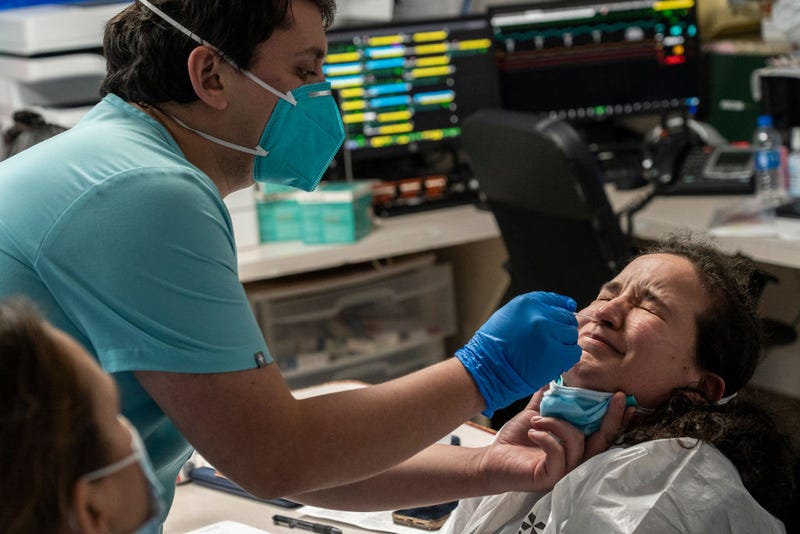
While hospitals grapple with the increase in COVID-19 cases amid the spread of the contagious delta variant, hospitals worry other respiratory illnesses could further strain facilities’ ability to meet the increased demand.
Listen to your favorite News/Talk station now on Audacy
A respiratory illness called RSV, respiratory syncytial virus, has reappeared in more significant numbers, infecting thousands of people and straining hospital systems further.
Public health experts point to social distancing and mask-wearing requirements implemented because of the coronavirus that also helped prevent the spread of influenza and RSV during the winter months. But since people have been vaccinated and feel less inclined to wear masks or socially distance, RSV has resurfaced.
“No one knows for certain what is driving this,” said Dr. Mike Patrick at Nationwide Children’s Hospital in Ohio. “But being isolated and behind masks, and then suddenly reintroducing people together, really fuels the spread of these viral illnesses.”

In Minnesota, hospitals are about 92% full, the Star-Tribune reported. Since May, more than 500 people in the state have sought care for RSV.
“In our system, the majority of patients that we are seeing [are] not COVID,” said Dr. Mark Sannes, medical director with provider HealthPartners. “We are extremely busy with non-COVID issues right now, and COVID is taking us to the point where we are at capacity.”
Since the beginning of August, Michigan hospitals have admitted roughly 100 COVID-19 patients a week. By the middle of this week, nearly 600 people were hospitalized, including 165 patients in intensive care units. It’s well below the about 2,000 patients admitted last fall but significantly more than the low seen in mid-July of less than 100 patients altogether. On Thursday, Minnesota reported more than 642,000 cases of COVID-19.
Unlike COVID-19 and influenza, there is no vaccine to ward off RSV. Researchers say the virus can live on hard surfaces for hours after an infected person has come in contact. People with RSV may develop a cough, runny nose, and fever.
At Children’s Minnesota, Dr. Robert Sicoli said in his 30 years as a physician, he’s never seen a similar surge in the number of summer RSV cases.
“We began to see some significant RSV activity in June, rising through July,” said Dr. Sicoli. “And our levels of overall incidence and hospitalizations in August approximate what we typically see in a [winter] surge season.”
The Minnesota Department of Health has directed facilities in its state to test patients for RSV if they have symptoms but test negative for COVID-19.
“Providers at Mayo Clinic and elsewhere across the country are seeing an increase in RSV cases and expect an extended RSV season this year,” said clinic spokeswoman Ginger Plumbo. “Mayo Clinic is prepared to handle any increase in RSV cases over the coming months.”
LISTEN on the Audacy App
Sign Up and Follow Audacy
Facebook | Twitter | Instagram
